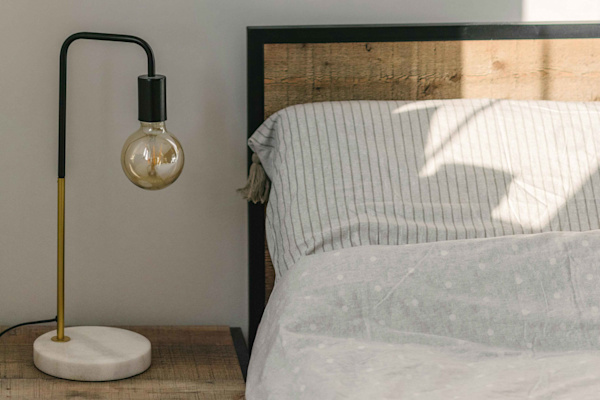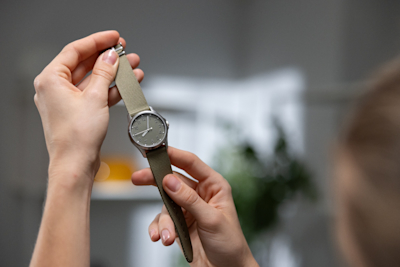
5 Things Sleep Experts Say We Still Get Wrong About Sleep
We think we’re doing everything right: We bought the weighted blanket, downloaded the popular meditation app, and invested in those fancy blackout curtains. Yet somehow, some of us are still lying awake at 2AM wondering why rest feels so impossibly hard to achieve.
However, here’s something that we might not want to admit: Many of us are more confused about sleep than ever before.
That’s right. Despite living in an age of sleep tracking apps, wearable sleep measuring rings, smart mattresses, and endless optimization advice, roughly 70 million Americans still suffer from chronic sleep problems. That’s according to the CDC. [1]
The issue isn't a lack of information. We’ve got that in spades, and it’s all basically at our fingertips. However, much of what we believe about sleep is simply wrong.
Dr. Neomi Shah, a sleep expert at Mount Sinai Hospital, sees the consequences of these misconceptions daily.[2]
Source: CNN: https://edition.cnn.com/2025/03/10/health/orthosomnia-sleep-tracker-wellness
From well-intentioned habits that backfire to popular wisdom that science has debunked, she's identified five persistent myths that continue to rob people of the rest they desperately need.
But there’s good news. Small shifts in understanding can lead to profound changes in how you sleep.
Here are five things people continue to get wrong about sleep & and how small changes can make a meaningful difference.
1. Relying on Sleep Trackers to Judge Rest Quality
While wearable devices can offer insights into general sleep patterns, they’re not always accurate, and (this is the kicker) in some cases, they may do more harm than good. Dr. Shah notes that for people prone to anxiety about their sleep, obsessively tracking it can actually create more stress and disrupt rest.
And if you’ve read Mudita’s articles about sleep, you know that. anxiety is a significant sleep disruptor. The relationship between anxiety and sleep is a bidirectional cycle where anxiety makes it hard to sleep, and poor sleep worsens anxiety.
READ: The impact of stress and anxiety on sleep hygiene
So, instead of relying solely on data, try tuning in to how you feel in the morning. Are you alert, focused, and in a stable mood? These are far better indicators of sleep quality than numbers on a screen.
At Mudita, we believe that sometimes simplicity is the best path forward. Instead of sleeping next to a glowing screen or wearing a sleep tracker on your wrist, consider using a mindful alarm clock like Mudita Harmony or Mudita Bell, designed to help you fall asleep and wake up free from digital distractions.
2. Exercising Too Early After Too Little Sleep
We often hear that consistency and discipline are key to fitness, but pushing your body to work out on only a few hours of rest might actually backfire. Dr. Shah explains that when you exercise at 5 a.m. after going to bed at 11 p.m., you’re essentially working out while your brain and circadian rhythm are still asleep.
Not only does this reduce the benefits of exercise, but it also increases the risk of muscle injury. Prioritize sleep before performance, your body will thank you with better endurance, strength, and recovery.
3. Thinking Six Hours Is Enough
About 40% of adults sleep less than seven hours a night, even though research consistently shows that most people need between seven and nine. When you cut back on sleep, you deprive your brain of crucial housekeeping time, the period when it clears toxins, consolidates memories, and regulates hormones like testosterone.[3]
READ: What Happens When You Sleep?
Chronic sleep deprivation can silently erode both physical and mental health over time. Rather than squeezing in extra hours of productivity, consider how much more you could accomplish, and how much clearer your mind would feel, if you prioritized rest and made it a goal to get a good night’s sleep.
READ: Effects of chronic sleep deprivation on health & well-being
4. Believing You Can “Catch Up” on Sleep Later
It’s a comforting thought that we can make up for lost sleep over the weekend, but unfortunately, the science doesn’t fully support it.
Dr. Shah explains that while you can recover from occasional sleep loss (and she means occasional), chronic sleep deprivation creates a long-term deficit that can’t easily be repaid. In fact, research shows that losing even one hour of sleep requires about four days to recover fully. [4]
The effects often don’t appear right away, especially for younger people, but years of undersleeping can contribute to weight gain, metabolic issues, and reduced cognitive function later in life.
Consistency matters more than occasional recovery, your body thrives on rhythm.
READ: Sleep debt: can you catch up on sleep?
5. Thinking Hitting Snooze Helps You Feel More Rested
That tempting extra ten minutes might actually make things worse. Repeatedly hitting snooze fragments your sleep into short, shallow bursts, increasing what experts call “sleep inertia,” which is that groggy, sluggish feeling that lingers even after you get up.
It’s better to set one alarm and get up right away. A gentle wake-up sound or gradual light can make this transition easier.
Both Mudita Bell and Mudita Harmony were designed with this in mind, using pleasant tones and no harsh screens to help you start your day calmly and naturally.
Mudita Harmony 2 and Mudita Bell 2
Better Sleep Starts with Simple Habits
We've been sold the idea that better sleep requires optimization, the right gadget, that expensive mattress or designer pillow. However, Dr. Shah's advice points to something far simpler, and perhaps harder: we need to stop treating rest like another productivity metric to master.
Your body already knows how to sleep. It's been doing it since birth. What it needs from you isn't more data or discipline, it's consistency, darkness, and the radical act of doing less. YES, less.
So tonight, try this: Set a simple alarm clock. Leave your phone to charge in another room. Let your brain finish its work while you're unconscious, clearing out the debris of the day and preparing you for whatever comes next.
Sleep shouldn’t be something you hack or conquer. It should be something that you allow. And that permission, to allow your body to rest fully, to stop mid-task, to prioritize recovery over productivity, might be the most countercultural choice you make all day.
Related stories

Why the World Needs a Mindful Field Watch
Why the world needs a mindful field watch. Discover how Mudita Radiant offers clarity, durability, and a calmer relationship with time.

The Story of Mudita Radiant & Designing Time Differently
Read about the story behind Mudita Radiant, a Swiss automatic field watch designed with clarity, durability, and mindful craftsmanship. Wear time differently.

Mudita Radiant Launches on Kickstarter
Discover Mudita Radiant, a Swiss automatic field watch combining precision, durability, and minimalist design. Now live on Kickstarter.
If you'd like to receive the best stories from our blog, keep up to date with our progress and get notified about our product releases and special discounts.